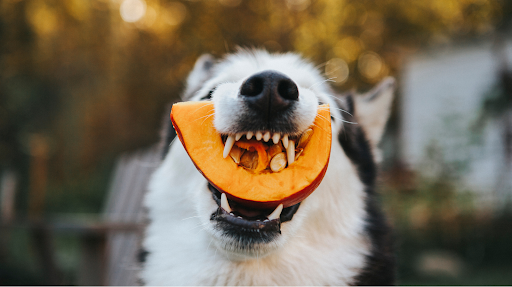How Heavy Are Huskies? Exploring Healthy Weight Ranges
Huskies are a popular dog breed known for their remarkable endurance and unique appearance. Understanding the healthy weight range for Huskies is crucial for maintaining their well-being. This article provides a comprehensive overview of what weight range is considered healthy for Huskies, factors affecting their weight, and tips for managing their weight effectively.
Understanding the Breed: The Siberian Husky
The Siberian Husky, a breed that originated in Northeast Asia, is renowned for its stamina and resilient nature. Bred by the Chukchi people for sled pulling and companionship, these dogs are distinguished by their thick fur, striking eyes, and friendly demeanor.
Physical Attributes
An adult Siberian Husky typically stands between 20 to 24 inches at the shoulder. They possess a double coat comprising a dense undercoat and a longer topcoat, which requires regular grooming. Their eye color varies from blue, brown, or even heterochromia (two different colored eyes).
Healthy Weight Ranges for Huskies
For male Siberian Huskies, a healthy weight ranges from 45 to 60 pounds, while females typically weigh between 35 to 50 pounds. These ranges are guidelines and can vary based on individual factors like height and body composition.
Factors Influencing Weight
A Husky’s weight can be influenced by diet, exercise, genetics, and health conditions. Regular vet check-ups are essential to monitor their weight and overall health. Diet should be balanced and suitable for their age, activity level, and health needs.
Diet and Nutrition
A balanced diet is key to maintaining a Husky’s healthy weight. High-quality dog food, rich in protein and nutrients, supports their active lifestyle. It’s important to avoid overfeeding and provide meals appropriate to their age and activity level.
| Aspect | Male Siberian Husky | Female Siberian Husky |
| Caloric Intake | Higher due to larger size and weight. | Slightly lower compared to males. |
| Protein Content | High protein diet for muscle maintenance. | Slightly less protein compared to males. |
| Fat Content | Moderate to high, depending on activity. | Moderate, tailored to activity level. |
| Carbohydrates | Required for energy, but in moderate amounts. | Similar needs, but in slightly lower amounts. |
| Vitamins and Minerals | Essential for overall health. Balance is crucial. | Same as males, with emphasis on reproductive health (if not spayed). |
| Water Intake | High, due to size and activity level. | Slightly less than males, but still significant. |
| Portion Size | Larger portions due to greater body mass. | Smaller portions relative to males. |
| Meal Frequency | 2-3 meals per day, based on activity level. | Same as males, adjusted for smaller size. |
| Special Dietary Considerations | May require more calories during active periods. | May need dietary adjustments during pregnancy or lactation (if applicable). |
Supplements and Treats
Supplements can be beneficial, especially in managing joint health and coat quality. However, treats should be given in moderation as they can contribute to weight gain. Always consult a vet before introducing supplements to your Husky’s diet.
Exercise and Activity Level
Huskies are high-energy dogs that require regular exercise to maintain a healthy weight. Activities like running, hiking, and playing fetch are excellent for keeping them active and engaged.
| Aspect | Male Siberian Husky | Female Siberian Husky |
| Type of Exercise | High-intensity activities like running, trekking. | Similar to males but can prefer varied routines. |
| Duration of Exercise | 1-2 hours daily, depending on age and health. | Slightly less than males, based on size. |
| Exercise Intensity | High intensity, especially for younger dogs. | Moderate to high, depending on the individual. |
| Mental Stimulation | Requires challenging activities and training. | Needs mental stimulation through training and play. |
| Socialization Needs | High; enjoys activities with other dogs. | Similar socialization needs, may be more selective. |
| Off-Leash Exercise | Possible in safe, enclosed areas. | Same as males, with careful monitoring. |
| Seasonal Adjustments | May need more indoor activities in extreme heat. | Same as males, with attention to weather changes. |
| Special Considerations | May require more rigorous exercise in youth. | Might need exercise adjustments during pregnancy or heat cycles. |
Impact of Exercise on Weight
Regular exercise not only helps in weight management but also in maintaining muscle tone and overall health. Lack of exercise can lead to weight gain and associated health issues in Huskies.
Health Considerations and Weight
Huskies are prone to certain health issues like hip dysplasia and eye problems, which can impact their weight. Overweight Huskies are at a higher risk of developing joint issues and other health problems.
Veterinary Care and Monitoring
Regular veterinary check-ups are crucial in monitoring your Husky’s weight and overall health. Your vet can provide guidance on weight management and detect any health issues early on.
Managing a Husky’s Weight
Regular weigh-ins help track your Husky’s weight and make necessary dietary or activity adjustments. Keeping a record of their weight can be beneficial in identifying any sudden changes.
Diet and Exercise Adjustments
If your Husky is under or overweight, adjustments in diet and exercise routines are necessary. A vet can provide personalized advice based on your Husky’s specific needs.
Conclusion
Maintaining a healthy weight is vital for a Husky’s overall health and wellbeing. By understanding their specific needs in terms of diet, exercise, and healthcare, owners can ensure their Huskies lead a happy, healthy life.
Discover Your Husky’s Path to Wellness with YourpetLand
Embark on a journey towards optimal health for your Husky with YourpetLand, your trusted pet advisor. Uncover tailored advice, innovative solutions, and expert guidance to ensure your beloved Husky thrives in every aspect of life. Visit YourpetLand today and take the first step towards a happier, healthier Husky.


